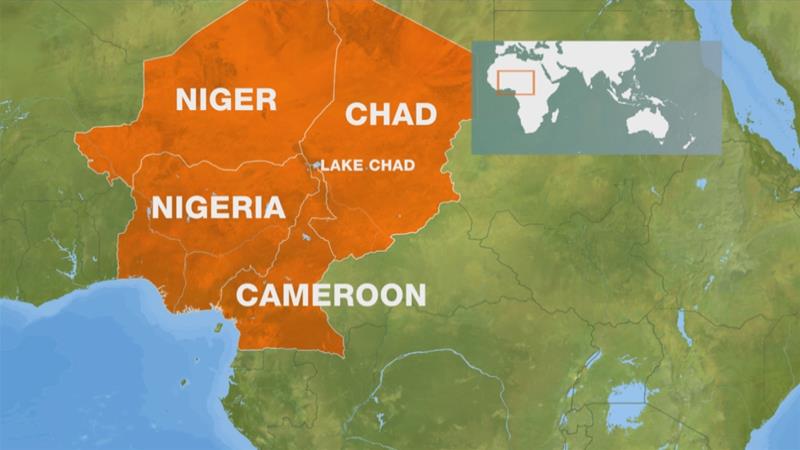The World Bank on Wednesday approved loans totalling $346 million to help strengthen resilience and livelihoods in the Lake Chad region, which is shared among Cameroon, Chad, Niger and Nigeria.
The two newly-approved operations focus on enhancing regional collaboration among the four countries to support communities close to the shore of Lake Chad areas and to improve the living conditions of the population, including vulnerable women and youth who face the negative impacts of climate change and suffer from insecurity.
The first project, the Lake Chad Region Recovery and Development Project (PROLAC, $170 million), will support national and regional coordination platforms and local capacity building, contribute to restore sustainable rural mobility and connectivity and strengthen the recovery of agricultural livelihoods in selected provinces of Cameroon, Chad, and Niger. It will also promote knowledge sharing and regional dialogue with a data platform hosted at the Lake Chad Basin Commission, while strengthening community empowerment through citizen engagement, social cohesion activities and labour-intensive public works.
PROLAC will contribute to the rehabilitation of rural roads and small transport infrastructure, and will promote productive investments by helping agricultural producers to increase productivity in the polder areas in Chad, the farming of oasis areas in Niger, and in the areas close to the shore of the Lake Chad in the Far North of Cameroon.
The second project, the Multi-Sectoral Crisis Recovery Project for North Eastern Nigeria, Additional Financing (MCRP AF, $176 million), will help the government of Nigeria to improve access to basic services and livelihood opportunities for crisis-affected communities in the North Eastern states of Adamawa, Borno and Yobe, while enhancing coordination among these states and other Lake Chad countries.
It expands the ongoing $200 million MCRP project and puts an increased emphasis on support for agricultural livelihoods and investments.
In addition, the MCRP AF will include support for labour-intensive approaches and works programs, promote rural and regional connectivity, rehabilitate market infrastructure and prioritise climate change adaptation and mitigation.
The project will also expand its education and health activities to include a focus on service delivery by providing grants to school committees and incentives to returning teachers, and by promoting quality of primary health care services in targeted public health centres and district hospitals.
“The Lake Chad region remains a priority area of engagement given the common nature of the challenges faced by the sub-region and the huge potential for regional cooperation”, says Deborah Wetzel, World Bank Director of Regional Integration for Africa.
“The framework being created by both PROLAC and the MCRP AF will lay the foundation for future regional and coordinated investments that will improve access to regional markets, promote value-chains development and revive cross-border and regional trade,” she added.
Both PROLAC and the MCRP are well aligned with existing regional and national strategies, including (i) the World Bank’s Regional Integration and Cooperation Assistance Strategy which promotes collective actions to address the risks of regional economic contagion, fragility, epidemic and climate hot spots; (ii) the World Bank’s Strategy for Fragility, Conflict and Violence; and with (iii) the Country Partnership Frameworks for Cameroon, Chad and Niger, and the Country Partnership Strategy for Nigeria.
According to the Bank, Lake Chad region generally suffers from poor development and economic indicators compared to the averages in the four countries. There are significant gaps in infrastructure, access to basic services is poor, and natural resources and livelihoods are severely impacted by climate change.
The situation is exacerbated by insecurity prevailing since 2009 due to insurgent activities that prevents more than 49 million people from attaining their livelihoods in fishing, livestock farming and agriculture.
YOU SHOULD NOT MISS THESE HEADLINES FROM NIGERIAN TRIBUNE
Buy and read digital replicas of your TRIBUNE titles by subscribing through E-VENDING
Pantami Used Armed Officers To Evict Our Staff, Abike Dabiri Alleges
The chairman, Nigerians in the Diaspora Commission (NIDCOM), Abike Dabiri-Erewa, has alleged that the Minister of Communications and Digital Economy, Dr Isa Pantami used armed security men to eject NIDCOM from the offices which they occupied in the NCC building located at Mbora District… Read full story
Naira Set To Rally As CBN, ABCON Finalise BDCs’ Resumption Of Forex Sale
The naira is facing its greatest risk from the COVID-19 pandemic as currency speculators continue to make spurious demand for dollar with the hope of making good returns from the rising gaps between… Read full story
MONDAY LINE: Buhari’s Fifth May 29
MUHAMMADU Buhari’s first coming was from December 31, 1983 to August 27, 1985. It was a period of famine and pestilence; of queues for coins and corn and of lean liberty. His second coming will be five years old on Friday. Can he sit back and use his tongue to count his teeth? What has changed between his past… Read full story




